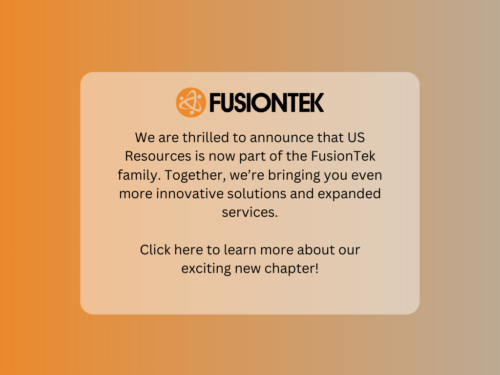A managed services plan is a subscription service offered by a managed service provider (MSP) for services rendered. An MSP is typically a third-party business that remotely manages an end user’s IT infrastructure and applications. MSPs are employed by small- and medium-sized businesses (SMBs), charitable organizations and governmental organizations to carry out a specific range of ongoing management tasks.
Network management, cybersecurity and cloud storage are a few of the services that may be offered. For customer companies to concentrate on developing their services without being concerned about protracted system outages or service interruptions, good MSPs perform management services professionally and on a continuous basis.
While some MSPs may focus on particular IT subfields, like data storage, others may concentrate on particular vertical industries, such as legal, financial, healthcare or manufacturing.
Purchasing a subscription plan with a managed services company can be a smart move to advance your business and stay above the competition.
What Is a Managed Services Plan?
Typically, there are two different business models used by MSPs. First is the break/fix model. In this model, whenever a client needs onsite or remote technical support, they contact the MSP. The company then dispatches one of its technicians to the client’s location to perform repairs or performs the tasks remotely, depending on the situation. The client is then billed based on the number of billable hours the tech used to resolve the problem or based on some other agreed criteria.
The second business model for MSP is the subscription plan model, which happens to be the most widely used business model. Here, a business pays a subscription fee to an MSP for its services to cover a certain period, usually monthly.
Using remote tools and applications, the managed services provider regularly installs programs and checks on the client’s network’s health. Other areas managed by MSPs include cyber security, cloud services, backup services and VoIP.
The MSP also responds to hardware breaches by sending its technicians to make repairs at no extra cost to the company. This is often preceded by a managed services agreement (MSA), a written statement that binds the MSP and the client showing the services offerings, response time, payment structure and liability protection.
The fast-paced nature of our contemporary business climate has made it necessary to shift our focus from break/fix IT to a more proactive approach by taking advantage of the MSP subscription plan model.
How Could a Managed Services Plan Help My Business?
The benefits of a managed services plan for your business are quite a handful. Discover what makes a managed services plan a better option compared to an in-house IT department or the break/fix model.
1. Cost-Efficient
One of the benefits of working with a managed services plan is that it is more cost-efficient. The cost of setting up and managing an IT department, purchasing equipment and training personnel is some valuable funds that can be channeled to other areas of production.
With a managed services plan, you can gain access to experts at a cheaper rate. Also, what might seem to be a simple service package includes costs for routine maintenance, support and repairs. This means that even if you ever require emergency assistance, the MSP puts in extra time and effort to render you with technical assistance for as long as your subscription lasts.
2. Avoids Downtime
When it comes to your key systems, an MSP can assist your company in taking proactive steps as opposed to being reactive. For instance, excellent MSPs will continuously monitor your systems and fix problems before they become serious, preventing a potential total breakdown of your business operations.
So, an MSP can assist you in maximizing uptime and minimizing downtime. And it’s simple to understand why this is so valuable, as over 60% of downtimes cost more than $100,000 in 2019, according to the Uptime Institute’s 2022 Outage Analysis Report
3. Access to Experts
To stay ahead of competitors and to ensure that your customers are continuously satisfied, you may need to invest in new pieces of technology. However, your current internal staff may be unfamiliar with this new technology. Working with a managed services plan in this situation will be helpful.
MSPs have experts in every vertical with years of experience as proof. In addition to accurately fixing your existing systems, backup, cyber security or network issues, they will advise you on ways to harness new technological trends to improve company operations.
4. Access to Latest Technology
How can your internal resources concentrate on making sure your company is as innovative as it can be if they are already overburdened with responding to emergencies and BAU tasks? In addition to being aware of industry trends, great MSPs have complex software and licenses that enable them to perform difficult activities, which they will use for your company. An example is productivity and collaboration software licenses for solutions like Office365.
5. Scalability
As your business grows, your technology will need to grow as well. With MSPs, you can easily expand your company’s digital capabilities by expanding your range of IT services. In addition, pay-as-you-go plans are also available, where you may choose to enhance the capacity of your IT solutions during peak hours or call for a reduction as the situation demands.
6. Centralized System
An MSP hosts your business apps and data using a common virtual server environment. They comply with privacy and standard security regulations so that you can be sure that your sensitive corporate data is securely stored. Centralization ensures that workers can have access to the same company data from any location, provided they have an internet connection and access. This service also offers protection in case of data loss due to disaster or theft at your business site.
US Resources: Your Ideal IT Partner
Partnering with the right IT company can transform your business operations and drive success. If you’re ready to find an IT partner that checks all the boxes, partner with US Resources.
With our extensive experience, comprehensive service offerings, and commitment to innovation, we have everything you need to succeed. Schedule a consultation with us today to learn more about how we can support your business’s IT needs.


